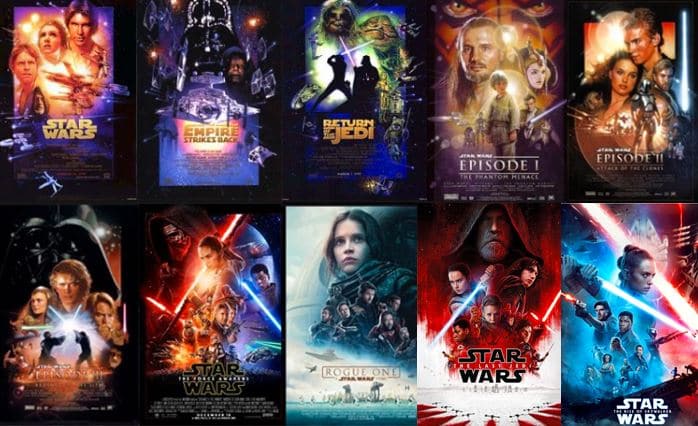

What does Star Wars have beyond an archetypal generic science-fantasy setting that makes it enduring and compelling? In this section, I will primarily focus on the original trilogy (Star Wars, The Empire Strikes Back and Return of the Jedi), as the success of these three films is the foundation that everything that has come since has built upon. To consider what makes a Star Wars game interesting, it's worth considering what makes Star Wars itself interesting.
#Star wars in order how to#
Details on how to navigate and explore its data can be found in the Reading the Release Timeline section below. The themed version features an interactive timeline which attempts to provide a comprehensive chronology of licenced Star Wars games from 1982's The Empire Strikes back for the Atari 2600 through to 2017's Star Wars: Force Arena.

In addition to the usual "Cheese Talks" article, I have put together another, cooler version styled loosely after a 90s Star Wars fan page, complete with yellow headings, and white text on a starfield background (obviously, this one is recommend!). This article is available in two versions. The original trilogy of Star Wars films, and a number of Star Wars games have been formative for me, and have not only sown some of the initial seeds of my own tastes, but also helped me to understand and have perspective on those tastes. Late last year, I attended a PAX Australia panel titled X-wings and TIE-ins, which advertised itself as "A brief history of very bad (and some not so bad) Star Wars games." The panel was enjoyable and seemed well pitched toward its audience, but it didn't dive as deeply into the chronology of Star Wars titles as I had hoped. Cheese talks to himself (about Star Wars games)


 0 kommentar(er)
0 kommentar(er)
